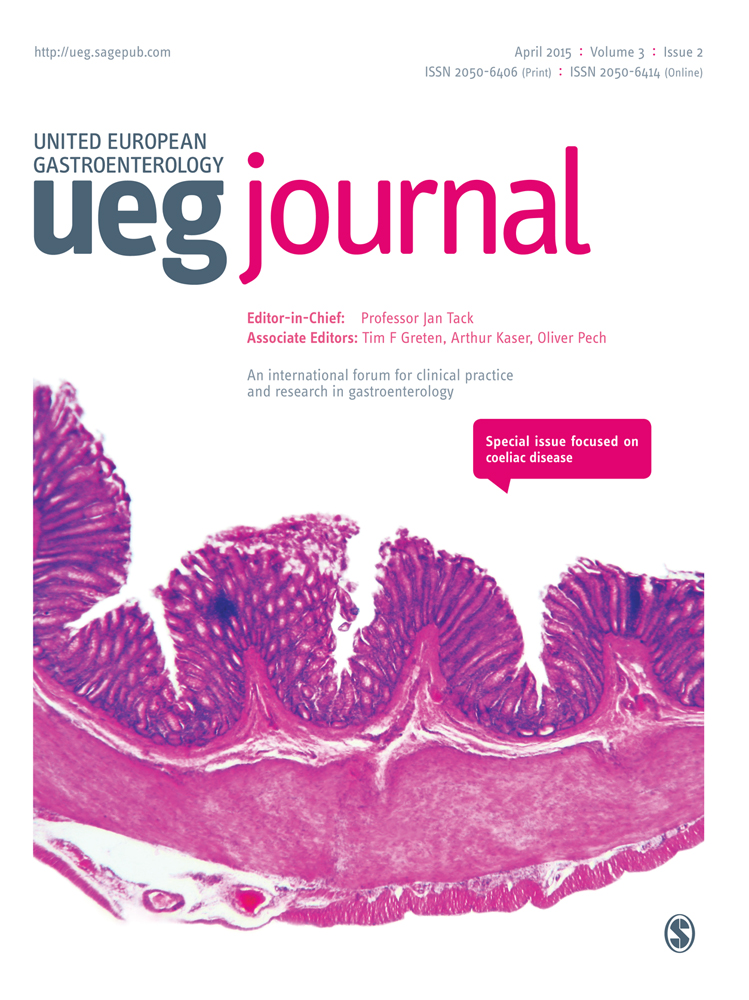Message from the editors: coeliac disease focused issue
Coeliac disease is a complex immune-mediated disease, occurring in genetically predisposed subjects as a reaction to exposure to gluten proteins in wheat and other grains. The only effective treatment is life-long adherence to a gluten-free diet.1 The incidence of coeliac disease in the general population shows marked geographical variation, and its diagnosis is relatively complex, based on clinical symptoms, serological tests and histopathological assessment of intestinal mucosa before and during therapy. Coeliac disease diagnosis and management can be challenging for the clinician, and also generates a considerable burden for affected patients and society.1
In this issue of the United European Gastroenterology Journal, we publish a series of articles dedicated to coeliac disease.2-5 These are focused in-depth reviews of the literature by a number of working groups of international experts, which also served as a scientific basis for the recently published guidelines on diagnosis and management of coeliac disease from the British Society of Gastroenterology.6
While this series of articles provides a solid reflection of the current state of knowledge, knowledge in this field continues to advance. This is well illustrated by two publications on the epidemiology of coeliac disease7, 8 in the current issue of the United European Gastroenterology Journal and by an article published last year on quantification of gluten–specific circulating T memory cells as a novel diagnostic approach in coeliac disease.9
Surprisingly, over the last few years, the gluten-free diet became a hype in the media, and became increasingly popular amongst people who do not have coeliac disease, often for gastrointestinal or non-gastrointestinal complaints perceived or self-diagnosed to represent gluten sensitivity.1, 10 When these patients present to physicians, this raises several challenging issues such as the nature of the “non-coeliac gluten sensitivity” disorder, its differentiation from true coeliac disease and the mechanism underlying potential benefits of gluten-free diet in the absence of demonstrable coeliac disease.1 In the current issue of the United European Gastroenterology Journal, we also publish a review on the intriguing entity of Non-coeliac gluten sensitivity, which summarizes current knowledge and concepts, and identifies directions for further research.11
We hope you enjoy this April 2015 issue of the UEG journal, and its focus on coeliac disease.
Jan Tack, Tim Greten, Arthur Kaser, Oliver Pech




